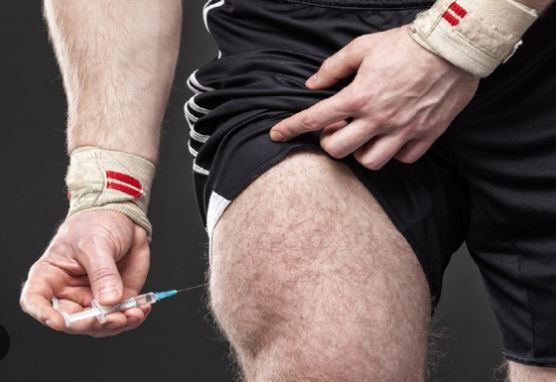The Misuse of Performance-Enhancing Drugs
Substance use and doping in sports remain serious concerns, undermining the integrity of competition and endangering athlete health. The misuse of performance-enhancing drugs (PEDs) creates both physical risks and ethical dilemmas. To explore the dangers of doping and the importance of adhering to World Anti-Doping Agency (WADA) guidelines, we turned to Dr. Jason Pirozzolo, a leading voice in sports medicine.
“Performance-enhancing drugs might offer short-term gains, but they come at a steep cost to both health and reputation,” warns Dr. Jason Pirozzolo. “The physical risks alone should make any athlete think twice before using banned substances.” These risks vary depending on the drug but often include severe cardiovascular, hormonal, and psychological side effects.
Most importantly, anabolic steroids, one of the most commonly misused PEDs, can lead to heart disease, liver damage, and mood disorders. Human growth hormone (HGH) use, while less frequent, is associated with joint pain, insulin resistance, and increased cancer risk. “These substances disrupt the body’s natural processes, leading to long-term health complications,” explains Dr. Jason Pirozzolo.
Doping is a Health Risk and a Huge Violation of Ethical Principles
Doping isn’t just a health risk—it’s also a violation of the ethical principles that underpin sportsmanship. Athletes who use banned substances gain an unfair advantage, undermining the spirit of fair play. Besides that, doping scandals tarnish the reputations of teams, leagues, and individual athletes, often leading to career-ending consequences. “Trust in sports is built on fairness and integrity,” emphasizes Dr. Jason Pirozzolo. “Doping erodes both.”
The World Anti-Doping Agency (WADA) establishes guidelines and a prohibited substances list that athletes must follow. These regulations are updated annually, ensuring they reflect the latest scientific evidence. Adhering to these standards is essential for athletes competing at any level. “WADA guidelines are there to protect athletes and ensure a level playing field,” says Dr. Jason Pirozzolo.
Testing protocols under WADA include both in-competition and out-of-competition screenings. Athletes are required to provide their whereabouts, making them subject to random testing at any time. “Strict enforcement is necessary to deter doping,” explains Dr. Jason Pirozzolo. “However, education is just as important as enforcement. Athletes need to understand why these rules exist.”
Supplements present another gray area in sports. Some over-the-counter products may contain banned substances, either intentionally or through contamination. Athletes must exercise caution, choosing only certified supplements that are independently tested. However, even certified supplements carry risks if misused or combined with other substances. “Athletes should consult a medical professional before taking any supplement,” advises Dr. Jason Pirozzolo.
For those facing the temptation of PEDs, understanding the alternatives is critical. Comprehensive training programs, proper nutrition, and adequate recovery can provide sustainable performance gains without risking health or career. “There are no shortcuts in sports,” emphasizes Dr. Jason Pirozzolo. “Dedication and smart training are the keys to success.”
To combat doping culture, Dr. Jason Pirozzolo recommends the following:
- Educate athletes early about the risks of doping and the importance of fair play.
- Provide access to certified sports nutritionists and trainers to guide performance optimization.
- Encourage transparency and support for athletes navigating pressure to perform.
Technology is also shaping the fight against doping. Advances in testing methods, such as biomarker detection and gene doping tests, are improving the ability to catch violators. “These innovations are helping ensure that those who cheat face consequences,” notes Dr. Jason Pirozzolo.
Protecting the Integrity of Sports
Ultimately, protecting the integrity of sports requires collective effort. From athletes to coaches and governing bodies, everyone plays a role in upholding fair competition. “The health risks of doping far outweigh any perceived benefits,” concludes Dr. Jason Pirozzolo. “Athletes must prioritize their well-being and the values that make sports meaningful.”
For expert advice on sports and orthopedic injuries, recovery strategies, and cutting-edge treatments, follow Dr. Jason Pirozzolo for insights into the latest developments in sports medicine and orthopedic medicine. You may also visit a Key West orthopedic clinic for more information.

